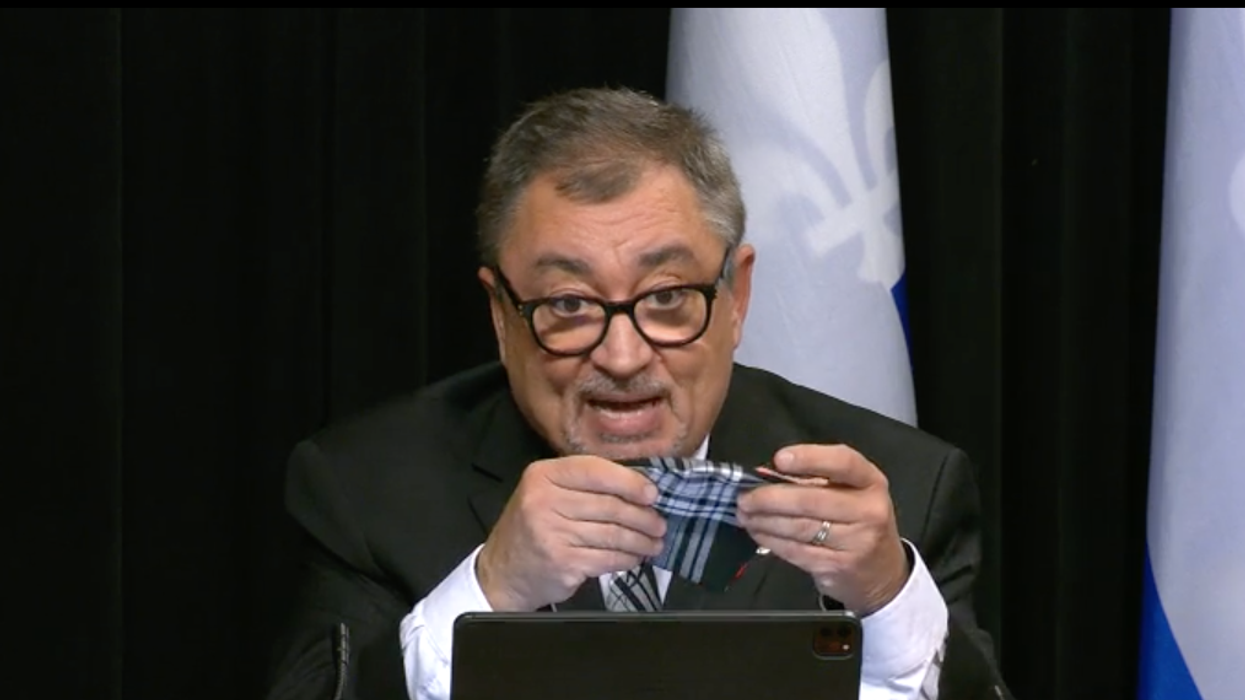This Is Quebec's Take On Canada’s New COVID-19 Guidelines For 3-Layer Masks & Air Droplets
Federal health officials have tweaked a couple of COVID-19 guidelines in the past few days. First, Dr. Theresa Tam, Canada's Chief Public Health Officer, recommended the use of three-layer masks. Then, the Public Health Agency of Canada (PHAC) updated its page with the "main modes of transmission" to include air droplets aka aerosols.
But, as most of us know, our provincial government doesn't always agree with the federal government. So what is Quebec's current take on the new guidelines?
Dr. Horacio Arruda, Quebec's public health director, addressed these topics at press conferences on November 3 and November 5.
Editor's Choice: Quebec Is Looking Into Letting You See Your BFF Even If You Don't Live Alone
“
Because it's winter, because we're all going inside, we're learning more about droplets and aerosols. It's just another layer of protection.
Dr. Theresa Tam, Chief Public Health Officer of Canada
In terms of three-layer masks for added protection, Dr. Arruda said, "Dr. Tam's recommendations cannot hurt, especially if you are comfortable with the mask."
He continued, "We know that face coverings do not all have the same level of effectiveness, [and] in particular, the number of extra layers will be an additional filter."
But he also highlighted a drawback: additional layers will also make it more difficult to breathe.
He let Quebecers know that it's better to wear a thinner mask than no mask at all.
Dr. Arruda said the Bureau de normalisation du Québec is working with L'Institut de recherche Robert-Sauvé en santé et en sécurité du travail (IRSST) to create standards for the fabrication of face coverings.
"We're going to come back to you with recommendations," he said.
On November 5, Dr. Arruda responded to PHAC's decision to follow the U.S. Center for Disease Control (CDC) and the World Health Organization (WHO) in recognizing that small droplets — which it says can linger in the air under "some circumstances" — can spread the virus.
"We have never neglected the fact that it could happen," Dr. Arruda said.
But the point he hit home, repeating it three times, was that aerosols are "not the principal driver of the infection."

